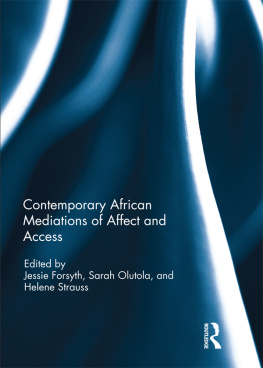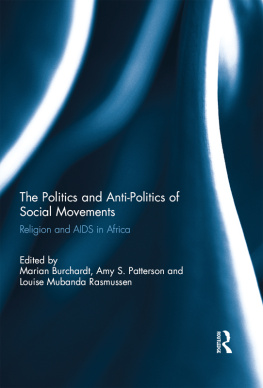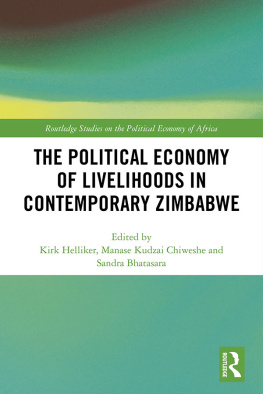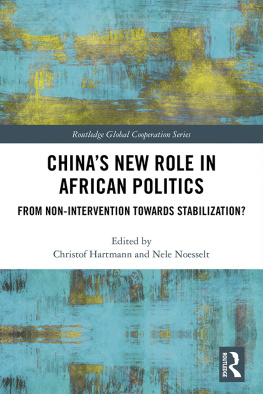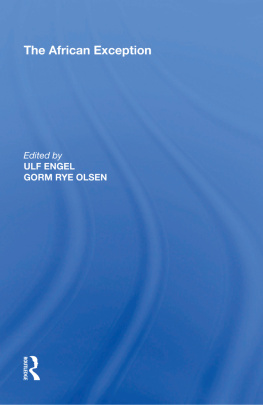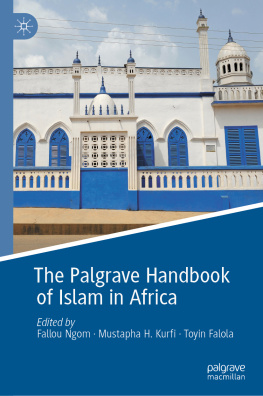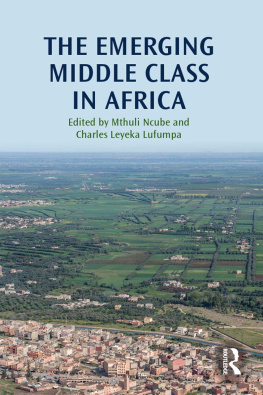Contemporary African Mediations of Affect and Access
Across Africa, new collectivities are shifting the terms within which access to economic opportunity, social belonging, and political agency have historically been understood. Recent years have seen powerful waves of civic mobilization sweep across the continent. Less prominent articulations of contemporary political desire have also been percolating through the diffuse experiences of the African everyday. As differential access to global capitalism and its promises fold into modes of subjectionand escapethat are hard to predict, those who exercise power find ever more elastic and resourceful ways of guarding the borders and memberships of privileged groups. This book turns to the critically entangled terms of affect and access as a basis for exploring emergent orientations in the field of African cultural theorizing. It pays especial attention to scholarship engaging with the multifaceted coordinates of political and social participation, where complex assemblages of affective attachment, exchange, and realignment work in concert with demands for sociopolitical and economic forms of access. This book was originally published as a special issue of Safundi.
Jessie Forsyth earned her PhD in English and Cultural Studies with a graduate diploma in Gender Studies and Feminist Research from McMaster University, Canada. Her research draws variously situated African and indigenous cultural texts into conversation to imagine critically transformative modes of working across epistemological, embodied, and sociopolitical productions of difference.
Sarah Olutola is a PhD graduate of the Department of English and Cultural Studies at McMaster University, Canada. Her current research and publications concern representations of race in popular media culture, globalization, and Western humanitarianism with respect to Africa.
Helene Strauss is the Chair of the Department of English at the University of the Free State, South Africa. She has published widely on South African literature and culture and currently serves on the editorial boards of ARIEL, English in Africa, and Acta Academica. She was the local director of the 2015 Association for Cultural Studies Institute.
Contemporary African Mediations of Affect and Access
Edited by
Jessie Forsyth, Sarah Olutola, and Helene Strauss
First published 2017
by Routledge
2 Park Square, Milton Park, Abingdon, Oxon, OX14 4RN, UK
and by Routledge
711 Third Avenue, New York, NY 10017, USA
Routledge is an imprint of the Taylor & Francis Group, an informa business
2017 Taylor & Francis
All rights reserved. No part of this book may be reprinted or reproduced or utilised in any form or by any electronic, mechanical, or other means, now known or hereafter invented, including photocopying and recording, or in any information storage or retrieval system, without permission in writing from the publishers.
Trademark notice: Product or corporate names may be trademarks or registered trademarks, and are used only for identification and explanation without intent to infringe.
British Library Cataloguing in Publication Data
A catalogue record for this book is available from the British Library
ISBN 13: 978-1-138-63639-2
Typeset in MinionPro
by diacriTech, Chennai
Publishers Note
The publisher accepts responsibility for any inconsistencies that may have arisen during the conversion of this book from journal articles to book chapters, namely the possible inclusion of journal terminology.
Disclaimer
Every effort has been made to contact copyright holders for their permission to reprint material in this book. The publishers would be grateful to hear from any copyright holder who is not here acknowledged and will undertake to rectify any errors or omissions in future editions of this book.
Contents
Jessie Forsyth, Sarah Olutola and Helene Strauss
Pumla Dineo Gqola
Jennifer M. Schmidt
Allison Mackey
Camille Isaacs
Derek Hook
Sarah Kastner
Susan Spearey
Ross Truscott
The chapters in this book were originally published in the Safundi: Journal of South African and American Studies, volume 17, issue 2 (April 2016). When citing this material, please use the original page numbering for each article, as follows:
Contemporary African mediations of affect and access
Jessie Forsyth, Sarah Olutola and Helene Strauss
Safundi: Journal of South African and American Studies, volume 17, issue 2 (April 2016) pp. 107118
A peculiar place for a feminist? The New South African woman, True Love magazine and Lebo(gang) Mashile
Pumla Dineo Gqola
Safundi: Journal of South African and American Studies, volume 17, issue 2 (April 2016) pp. 119136
The girls who dont die: subversions of gender and genre in recent fiction by Lauren Beukes
Jennifer M. Schmidt
Safundi: Journal of South African and American Studies, volume 17, issue 2 (April 2016) pp. 137155
Sticky e/motional connections: young people, social media, and the re-orientation of affect
Allison Mackey
Safundi: Journal of South African and American Studies, volume 17, issue 2 (April 2016) pp. 156173
Mediating womens globalized existence through social media in the work of Adichie and Bulawayo
Camille Isaacs
Safundi: Journal of South African and American Studies, volume 17, issue 2 (April 2016) pp. 174188
A threatening personification of freedom or: Sobukwe and repression
Derek Hook
Safundi: Journal of South African and American Studies, volume 17, issue 2 (April 2016) pp. 189212
Only words can bury us, not silence: reading Yvonne Veras difficult silences
Sarah Kastner
Safundi: Journal of South African and American Studies, volume 17, issue 2 (April 2016) pp. 213230
Fostering receptivity: cultural translation, ethical solicitation, and the navigation of distance in J.T. Rogers The Overwhelming
Susan Spearey
Safundi: Journal of South African and American Studies, volume 17, issue 2 (April 2016) pp. 231248
Empathys echo: post-apartheid fellow feeling
Ross Truscott
Safundi: Journal of South African and American Studies, volume 17, issue 2 (April 2016) pp. 249269
For any permission-related enquiries please visit:
http://www.tandfonline.com/page/help/permissions
Jessie Forsyth earned her PhD in English and Cultural Studies with a graduate diploma in Gender Studies and Feminist Research from McMaster University, Canada. Her research draws variously situated African and indigenous cultural texts into conversation to imagine critically transformative modes of working across epistemological, embodied, and sociopolitical productions of difference.
Pumla Dineo Gqola is a Professor of African Literature at the University of the Witwatersrand in Johannesburg. She is the author of Rape: A South African Nightmare (2015), A Renegade Called Simphiwe (2013), and What is Slavery to me? Postcolonial/Slave memory in Post-apartheid South Africa (2010).

